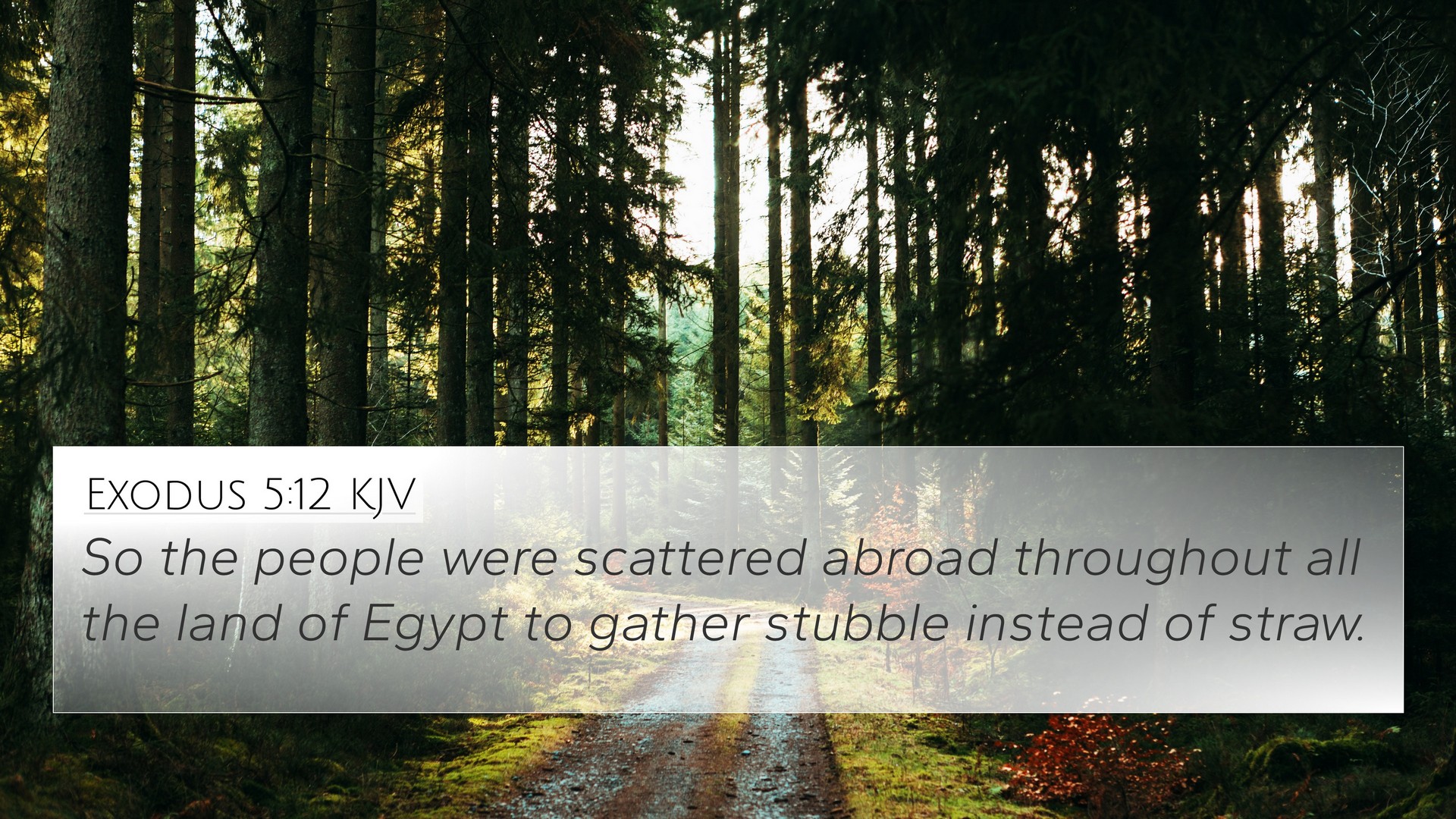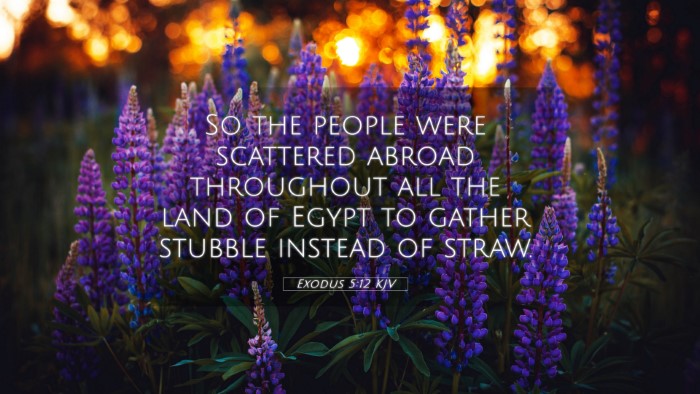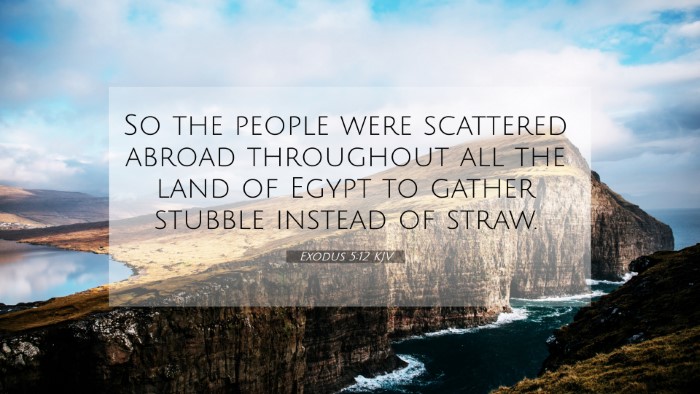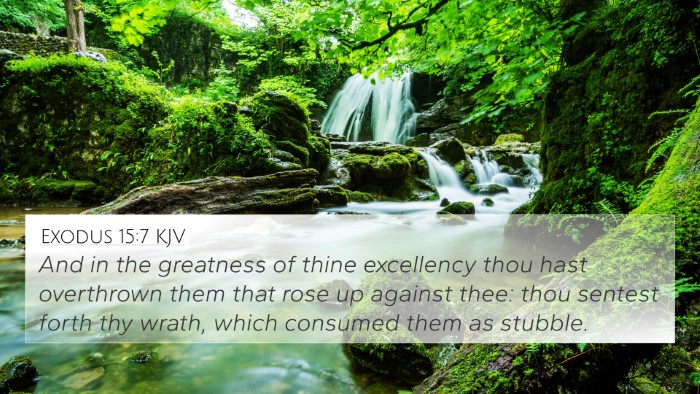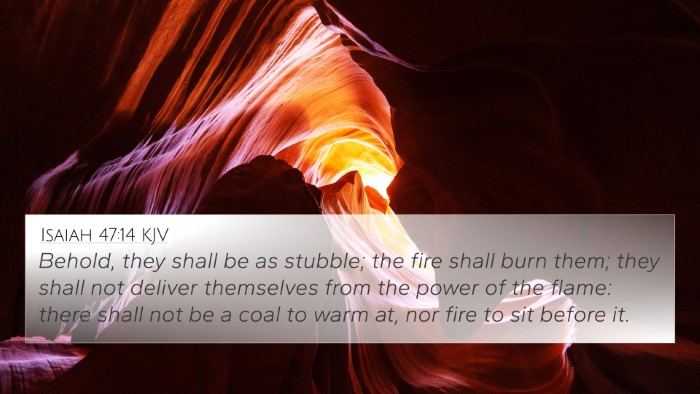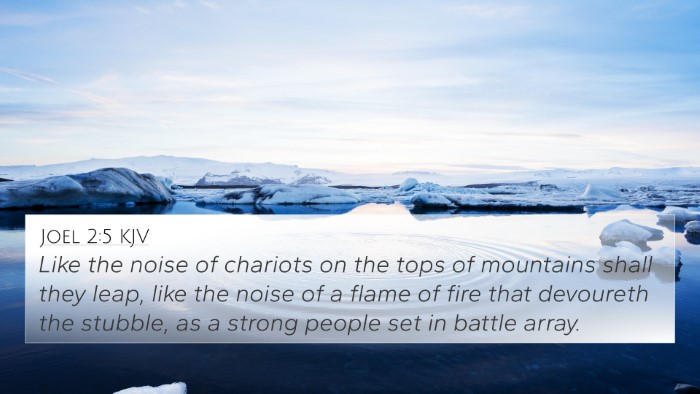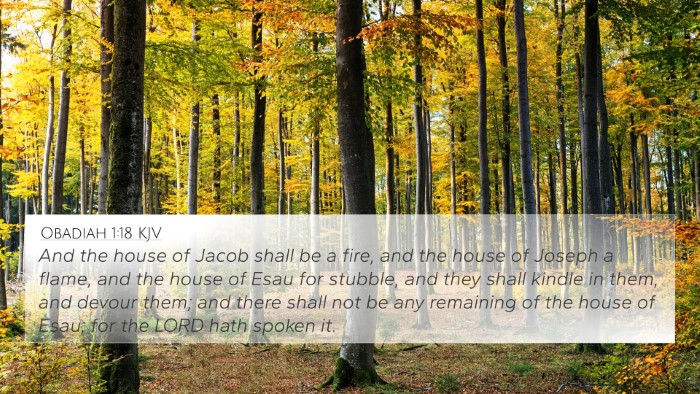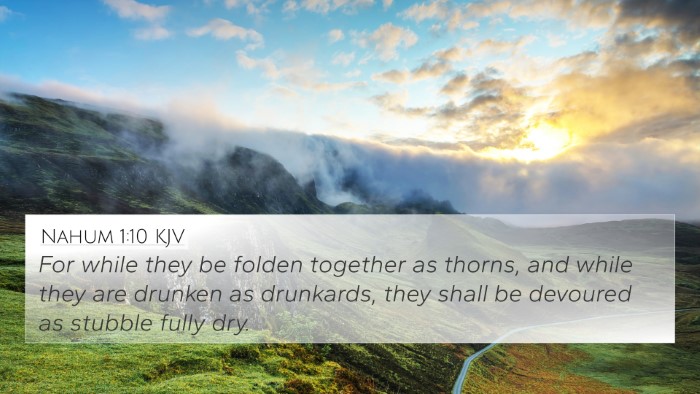Understanding Exodus 5:12
Verse: Exodus 5:12 - "So the people were scattered abroad throughout all the land of Egypt to gather stubble instead of straw."
This verse takes place within the context of the Israelites' enslavement in Egypt and their harsh conditions under Pharaoh's rule. It illustrates the severity of their plight and sets the stage for God's subsequent deliverance. The meaning of Exodus 5:12 can be explored through various public domain commentaries, which provide valuable insights into its implications and significance.
Key Themes and Insights
- The Burden of Oppression: The Israelites were tasked with gathering stubble, a mere remnant of what they once had, reflecting their reduced status as slaves forced to work harder under increasingly oppressive conditions.
- Symbolism of Straw and Stubble: Straw was a vital resource for making bricks, but the requirement to collect stubble instead signifies a lack of resources and dehumanization—a metaphor for the trials and tribulations facing the Israelites.
- God’s Presence in Affliction: Despite the apparent absence of God amidst such suffering, this passage foreshadows the eventual deliverance that will affirm God's promises to His people.
- The Role of Leadership: The leadership of Moses is pivotal as he confronts Pharaoh, representing God's authority against oppression. The struggle is both physical and spiritual, demonstrating the importance of faith in times of adversity.
Commentary Insights
Matthew Henry notes that the gathering of stubble instead of straw emphasizes the harsh conditions the Israelites faced, contrasting their expectations of liberation with their reality. He highlights that the labor required of them was not only physically demanding but also mentally and spiritually debilitating.
Albert Barnes focuses on the aspect of God's providence, suggesting that even in their suffering, the Israelites were unknowingly being prepared for the significant events that would follow, including their exodus from Egypt. He underscores the idea that God’s plan often unfolds amidst trials.
Adam Clarke emphasizes the historical context of slavery in Egypt, illustrating how Pharaoh's decrees were an effort to further subjugate the Israelites. Clarke's commentary also points out that the stubble symbolizes everything that the Israelites had lost during their time in captivity.
Bible Verse Cross-References
Understanding Exodus 5:12 is deepen through cross-referencing it with several other Bible verses, which provide thematic connections and contrast with the Israelites' suffering:
- Genesis 47:24: Reflects on the Israelites' prior prosperity during Joseph's time.
- Exodus 1:14: Describes the bitterness of servitude that the Israelites faced in Egypt.
- Exodus 2:23-25: Highlights God's awareness of the Israelites' suffering and His promise to deliver them.
- Psalm 105:27: Reminds us of the miracles God performed through Moses and Aaron as they led the Israelites out of Egypt.
- Isaiah 53:4: Connects to the theme of suffering, depicting the sense of bearing grief, akin to the Israelites' burdens.
- Acts 7:19: Refers to the oppression of the Israelites and foreshadows Moses' pivotal role in their redemption.
- Romans 8:18: Provides insight on the sufferings of the present time compared to the glory that will be revealed.
Conclusion
Exodus 5:12 serves as a powerful testament to the plight of the Israelites and prepares the reader for the deliverance narrative that follows. By examining this verse in conjunction with key commentaries and cross-references, we gain a deeper understanding of God's involvement during periods of hardship. This exploration serves as a reminder of the potential for redemption and hope that can be found in even the darkest times.
For those engaging with scripture, utilizing tools for Bible cross-referencing can enhance one's grasp of how individual verses interconnect, fostering a comprehensive Bible cross-reference study. Recognizing the deeper themes across different books of the Bible, such as the parallels between suffering and deliverance, enriches personal faith journeys and collective understanding.
